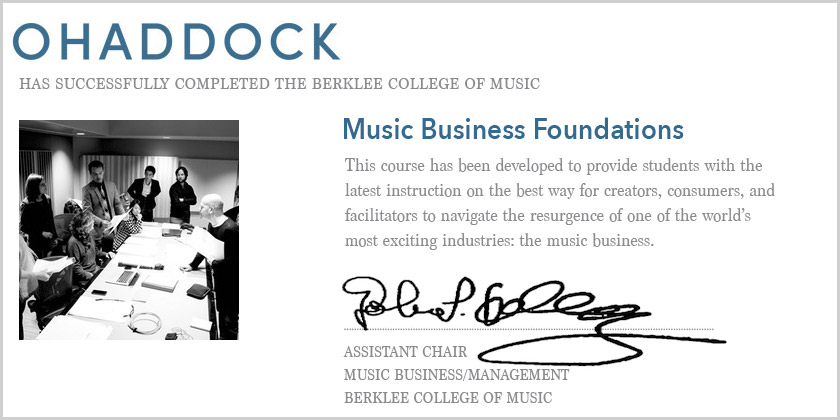The landscape of music creation, recording, publishing, promotion, and distribution is in a constant state of evolution. With the decreasing costs of production and the proliferation of artists leveraging the internet for exposure and career development, we find ourselves amidst a transformative shift from physical to digital paradigms. Positioned as pioneers in this new era of the music industry, it is imperative for us to grasp its intricacies and define our roles within it.
Regardless of whether one is a music creator or consumer, a foundational understanding of the music business is essential. The objective of the course was to equip students with the latest insights into navigating the resurgence of the music business, catering to creators, consumers, and facilitators alike. Under the tutelage of attorney John P. Kellogg, Esq., Assistant Chair of Music Business Management at Berklee College of Music, I delved into the fundamental principles of establishing a sustainable foothold in the evolving music industry.

The course provided a comprehensive exploration of contemporary and future prospects for music careers. A key takeaway was the unprecedented expansion of music consumption across diverse platforms, with recording remaining a pivotal tool for artists to initiate and nurture revenue streams from various channels.
Critical topics covered in the course encompassed the historical backdrop of the music industry, current business trends, and the fundamentals of copyright law relevant to music. Moreover, we examined the formulation of recording agreements and the pivotal roles played by agents, managers, attorneys, and different business entities. Emphasis was placed on staying abreast of the latest industry developments, underscoring the continuous evolution of the music business.
In conclusion, staying vigilant, informed, and adaptable is paramount to navigating the ever-changing landscape of the music industry. By understanding its nuances and embracing emerging trends, we position ourselves to thrive in this dynamic realm of art and commerce.
